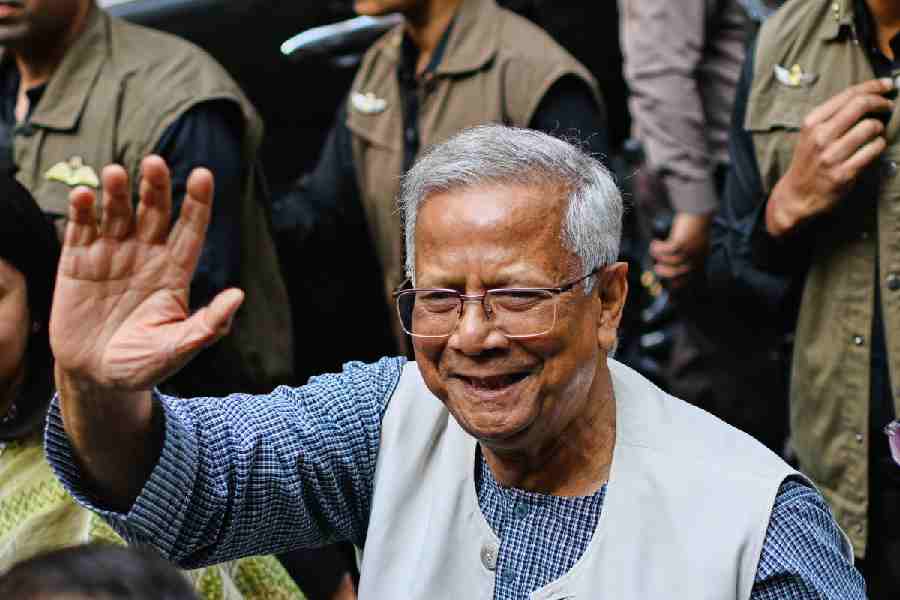It was a cold, foggy evening in Chandigarh, exactly when budding journalist and now renowned lyricist Irshad Kamil had an epiphany. “You want to go to Mumbai,” the inner voice went. And that’s exactly what he did.
More than two decades later, Kamil is one of the Hindi film industry’s most celebrated lyricists with songs like “Tumse hi” (“Jab We Met”), “Jo Bhi” (“Rockstar”), “Vida Karo” (“Amar Singh Chamkila”) and many more to his credit.
He remembers the moment when his life took a turn. Quite literally because he was actually on the road.
"I had submitted my final story of the day on a cold foggy winter evening. And as I left on my bike, I suddenly stopped on the side of the road and thought, 'Do I really want to become a journalist?' The voice inside me said, 'No, you want to do something else. You want to go to Mumbai'. When that decision happened internally, I quit my job and landed in Mumbai," Kamil told PTI.
Twenty years and many films later, Kamil said he takes every assignment like he is beginning his journey, the Hindustani word “safar” for it often finding a mention in his songs.
His most recent songs, “Tu Hai To Main Hoon” from “Skyforce” and “Jaane Tu” and “Aaya re Toofan” from "Chhaava", are topping the charts.
"Artists never think they have made it. They will never be able to point that out because they have to sit in the same class, take the exam and excel in it again and again. You write the lyrics and hope they click with the audience and when they do, you think about doing even better. So you keep doing the same thing," the lyricist-writer said.
Kamil, who born in Malerkotla in Punjab, said he always knew he was meant to do something with words. That’s what took him to journalism in Chandigarh. He did his graduation in journalism and later a Phd in Hindi literature.
Besides the long list of songs, he has also written some scripts, including the series "Main Teri Parchhain Hoon" and "Sanjeevani". Among his first big hits was the song “Bhaage Re Mann” from Sudhir Mishra's 2004 film "Chameli".
Looking back, Kamil said the experiences he had on his journey to success are invaluable and he wouldn't have it any other way.
"I worked a lot in the beginning because when you are starting out from scratch, you face difficulties but that's what makes it interesting. You gain in experience and that's different from something that you receive on a platter. There is a saying, 'Bahut kathin hai dagar panghat ki'. You have to walk the long walk," he said.
In his view, action films are doing well at this point but it is important to have films of all hues and it is impossible to remove romance from the lives of Indian people.
"In a film, a character goes through a journey in two hours and it is not always possible to explain things through dialogues. That's where songs come, to express the internal feeling.” Kamil, who counts Sahir Ludhianvi, Majrooh Sultanpuri, Shailendra and Anand Bakshi as his inspirations, believes it is important for lyricists to understand the world they are writing about so they must get familiar with the script to understand the headspace of the characters. Which is why he prefers to be on projects that treat movie albums with respect.
"I try to ensure, most of the time, that I am the only lyricist on a project but people have short cuts now, music companies have a different thought. So an independent music album fails to take shape. One tries to give life to the album by understanding the situation.
Kamil makes it a point to reference local dialects wherever possible.
"For example, 'Chamkila' has many Punjabi words because the character comes from there, similarly, in 'Gunday', I have used words like 'Taada Taadi' to give a touch of Bengal and in 'Sultan', the character is from Rohtak so the song 'Jug Gumeya' has the phrase 'thaare jaisa'. You change the vocabulary to reflect these things." Many of Kamil's songs, most notably the lines 'Jo bhi main kehna chaahu, barbaad kare alfaaz mere' from "Rockstar", 'Safarnama' and 'Agar tum saath ho' from "Tamasha" and most recently the tragic number "Vida Karo", have been praised for striking a deeply emotive chord.
Kamil said “Jo bhi” came from a few lines he had written years ago. When he narrated them to Imtiaz, the filmmaker suggested he make the expression more direct and Rahman elevated it with his music to the next level.
"I feel now it will exist forever," he added.
Similarly, "Vida Karo", he said, was written in a trance like state.
"It was 2.30 in the night. I was sitting with Rahman sahab and Imtiaz and I remember Rahman sahab was playing a tune on piano and I started to write something. Before we realised, we had 'Vida Karo'.
"There is an expression that artists use often. They say, 'aaj sur lag raha hai' and whatever I do, will turn out to be great today. Some songs are written in that meditative state where you enter a space where creativity flows. I always say, 'Dil ki baat dil tak aur zubaan ki baat kaan tak'. I believe in that." People often say that older songs were better than what is being written today but Kamil doesn’t quite agree.
"I think some great writing is happening now and in fact there is more versatility. What happens is that you get to hear 100 odd songs and not everything that's been written. They are the good ones that have filtered in through time. So of the songs that are being written today, only a few will survive the test of the time… A decade later, we will be repeating the line, 'songs of the earlier era were better'.” Next up for Kamil are films with frequent collaborators Imtiaz Ali and Aanand L Rai.
Except for the headline, this story has not been edited by The Telegraph Online staff and has been published from a syndicated feed.










